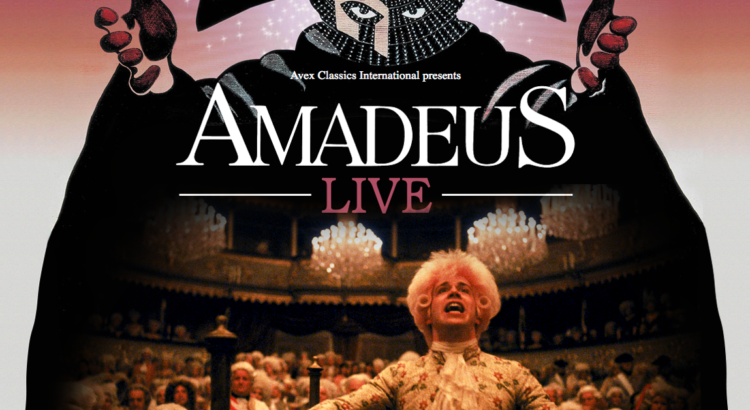Having never seen the 1984 film Amadeus, I must admit that, despite its reputation for historical inaccuracies, it is certainly a gripping drama that portrays Mozart (played by Tom Hulce) as intensely human. That said, during the Sunday afternoon screening of the movie at Hill Auditorium with the Detroit Symphony Orchestra performing the soundtrack live, I had to keep reminding myself to watch the movie, not the orchestra.
In addition to being musically impressive, the DSO’s performance of the soundtrack live was fascinating because of the logistics involved with playing alongside a film. Conductor Jeffrey Schindler had a small screen in front of him, in addition to the scores, showing the film with overlays of the beat and musical cues. The precision necessary for such an undertaking is serious, when one stops to think about it. In certain parts of the movie, the live orchestra was accompanying soloists whose voices were recorded and part of the original movie – almost like reverse karaoke!
In terms of plot, the movie tells the story of the relationship between Wolfgang Amadeus Mozart, great composer but vulgar person, and mediocre court composer Antonio Salieri (portrayed by F. Murray Abraham, who won an Oscar for his role), whose jealousy of Mozart’s genius consumes him. To be honest, I never really figured out who I thought was the “good guy,” and who I thought was the “bad guy,” which is perhaps part of the movie’s point. Salieri had malicious intentions, while Mozart was just plain obnoxious. He behaved inappropriately, had an absurd laugh, a dirty sense of humor, and neglected to care for his family. His every action makes the audience cringe, but his music – oh, his music will soothe your soul. The juxtaposition of Mozart’s persona and his music is a stark one, and that is what irks Salieri. Despite his hatred of Mozart, the man, he cannot help but be drawn to Mozart’s music. One of my favorite scenes of the movie was when Salieri, as a mentally ill old man, describes hearing Mozart’s Gran Partita for the first time (If you’re not familiar with the piece, listen to the movement in question here). As the third movement plays in the background (which was performed live by the DSO winds), he gives voice to his recollections as if in a nostalgic trance:
“On the page it looked nothing, the beginning simple, almost comic. Just a pulse. Bassoons, basset horns, like a rusty squeezebox. And then, suddenly, high above it, an oboe. A single note hanging there unwavering, until, a clarinet took it over, sweetened it into a phrase of such delight. This was no composition by a performing monkey. This was a music I had never heard. Filled with such longing, such unfulfillable longing, it seemed as if I was hearing the voice of God.”
This scene, in my opinion, captures the underlying nuances of the movie’s plot.
While Amadeus may not be the film to watch if you’re seeking an accurate account of music history, it is a story that appeals to timeless themes and the complexities of the human condition, and the DSO’s live performance of the soundtrack only made it better!


